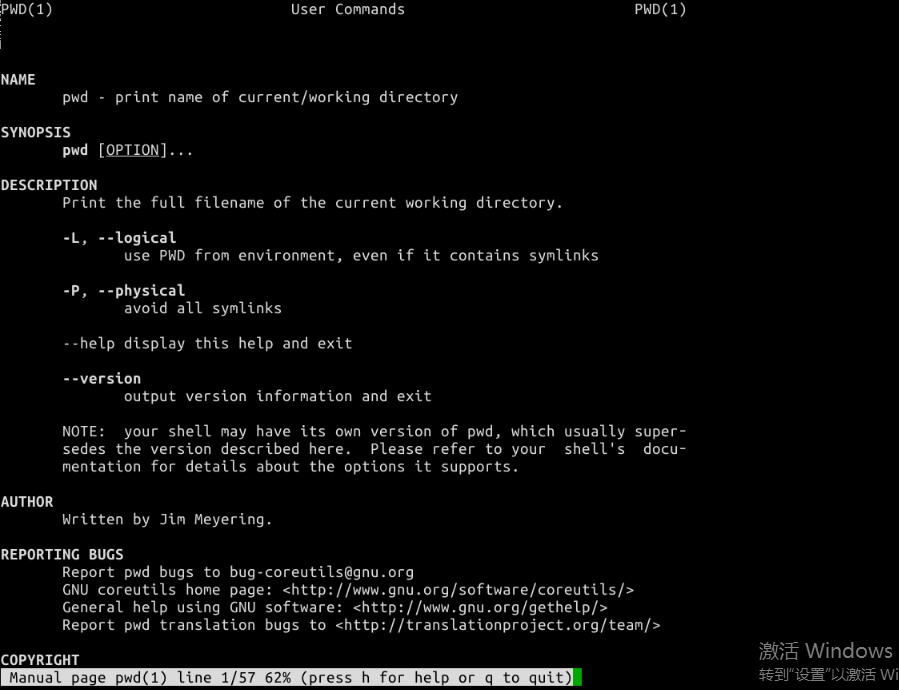2018-2019-1 20165226《信息安全系统设计基础》 pwd命令的实现
一、学习pwd
查看pwd

得知一个嫩过去文件路径的函数——
getcwd

i节点值
通过
ls -i -a查看.、..目录对应的值stat结构体
struct stat {
mode_t st_mode; //文件对应的模式,文件,目录等
ino_t st_ino; //inode节点号
dev_t st_dev; //设备号码
dev_t st_rdev; //特殊设备号码
nlink_t st_nlink; //文件的连接数
uid_t st_uid; //文件所有者
gid_t st_gid; //文件所有者对应的组
off_t st_size; //普通文件,对应的文件字节数
time_t st_atime; //文件最后被访问的时间
time_t st_mtime; //文件内容最后被修改的时间
time_t st_ctime; //文件状态改变时间
blksize_t st_blksize; //文件内容对应的块大小
blkcnt_t st_blocks; //文件内容对应的块数量
};
由此可知通过
ino_t返回i-Node值
二、编写代码
思路1
(1)得到"."的i节点号,称其为n(使用stat)
(2)chdir ..(使用chdir)
(3)找到inode号为n的节点,得到其文件名。重复上述操作直到当前目录“.”的inode值等于".."的inode值
- 代码1
#include <stdio.h>
#include <sys/types.h>
#include <sys/stat.h>
#include <dirent.h>
ino_t get_inode(char *);
void printpathto(ino_t);
void inum_to_name(ino_t ,char *,int);
int main()
{
printpathto(get_inode("."));
printf("\n");
return 0;
}
ino_t get_inode(char * filename)
{
struct stat buffer;
if(lstat(filename,&buffer) == -1)
{
perror("can't stat");
exit(1);
}
return buffer.st_ino;
}
void printpathto(ino_t ino)
{
ino_t ino_parent = get_inode("..");
if(ino_parent == ino)
return;
else
{
struct stat s;
char buffer[255];
chdir("..");
inum_to_name(ino,buffer,255);
printpathto(ino_parent);
printf("/%s",buffer);
}
}
void inum_to_name(ino_t ino,char * buffer,int buffer_length)
{
DIR * dir;
struct dirent * direntp;
struct stat stat_buffer;
dir = opendir(".");
if(dir == NULL)
{
perror("can't open dir .");
exit(1);
}
while((direntp = readdir(dir)) != NULL)
{
lstat(direntp->d_name,&stat_buffer);
if(stat_buffer.st_ino == ino)
{
strncpy(buffer,direntp->d_name,buffer_length);
buffer[buffer_length-1] = '\0';
closedir(dir);
return;
}
}
}- 代码2(使用getcwd)
#include <stdio.h>
#include <stdlib.h>
#include <unistd.h>
int main(){
char *filepath=NULL;
filepath=getcwd(NULL,0);
puts(filepath);
free(filepath);
return 0;
}- 测试结果
